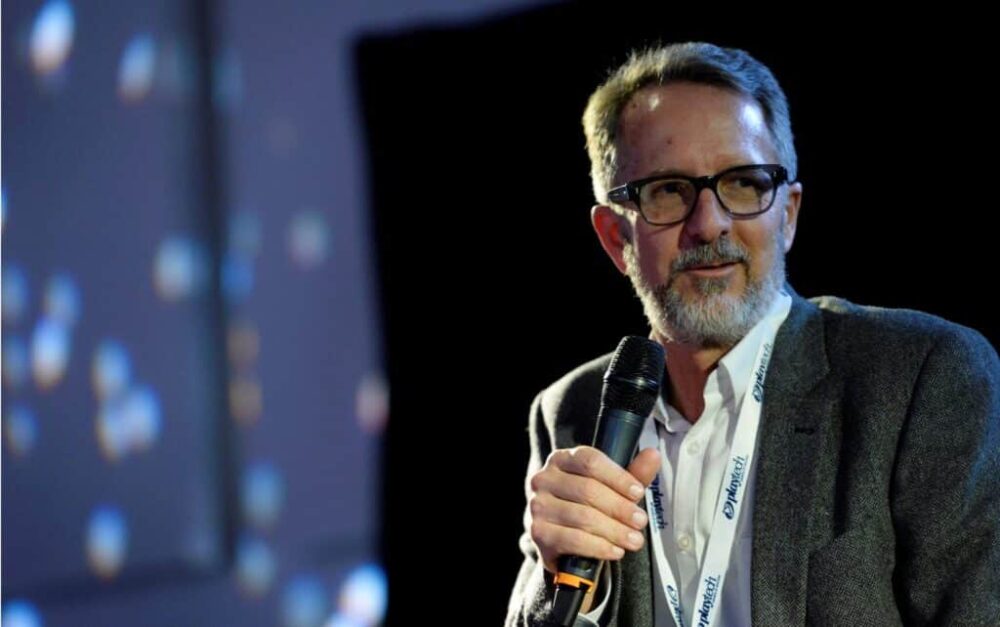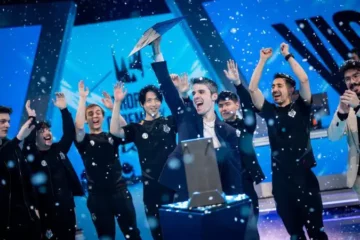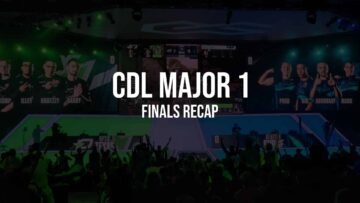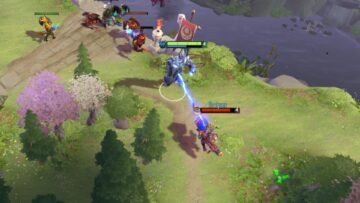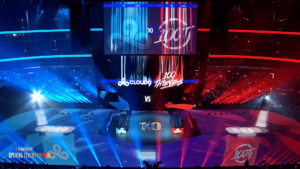
ESIC Commissioner Ian Smith has explained the organization’s silence on the North American match-fixing scandal that came to light in 2020
Ian Smith, the Esports Integrity Commission (ESIC) Commissioner, sat down for an interview with INSITE. The conversation covered various subjects, including the ongoing North American match-fixing investigation and the coach bans implemented by ESIC following the 2020 spectator bug revelation.
ESIC has broken its silence on the two-year anniversary of the NA match-fixing fiasco that tore the remains of the region asunder.
integrity commissioner, Ian Smith (@bristollawyer) spoke to INSITE about everything from the coaching bug to match-fixing.
Tap below 👇
— INSITE. (@insite_cs) August 23, 2023
What Did The ESIC Comissioner Say About The NA Matchfixing Scandal?
In the course of the interview, Mr. Smith endeavored to provide a rationale for the Esports Integrity Commission’s (ESIC) decision to maintain a period of silence lasting two years with regard to the North American match-fixing investigation that became public in 2020.
The ESIC commissioner justified this by pointing to insufficient substantial evidence, financial limitations impacting the ability to conduct ongoing investigations, challenges encountered in obtaining betting information from uncooperative betting operators, and his personal shift in attention toward present-day issues.
These factors collectively contributed to the absence of sanctions in the matter. Additionally, Mr. Smith revealed that the commission had gathered enough evidence at one point to potentially press charges against “five to six” individuals. Since they had already retired from the competitive scene, nonetheless, no action was ultimately taken.
How Has The NA Matchfixing Scandal Affected The Regional Scene?
While these explanations provide some insight into the investigation’s lack of progress, they fall short of fully justifying the complete absence of communication from the esports oversight body for a duration of two years. Moreover, the repeated failures to deliver on promises of updates and investigative disclosures, which were meant to expose those involved in the mentioned match-fixing, remain unaddressed.
Adding to the frustration, Mr. Smith’s later remarks in the interview dismiss the absence of updates and ongoing investigation, indicating that he requires external reminders and accountability to continue pursuing the matter. He further emphasizes his focus on the present rather than dwelling on past events.
For more than three years, the ominous prospect of impending consequences for up to 34 North American players has cast a shadow of uncertainty over the region. After this interview, it’s unclear whether the ESIC commissioner fails to grasp the significant repercussions of the extended investigation, and more importantly, the prolonged silence, or if he simply shows disregard.
Several organizations have exhibited caution when it comes to recruiting players from the sub-top echelon of North America, fearing potential ties to match-fixing incidents. Curiously, some of the alleged match-fixers have switched to VALORANT and achieved remarkable success without encountering any repercussions for their previous behavior. This scenario has also impacted the integrity of the lower leagues, leaving fans with scarce information and prompting them to question the legitimacy of the matches they were following.
While it’s valid to consider the challenges discussed by Mr. Smith that have slowed down the investigation’s headway, it’s still essential to address the consistent pattern of unfulfilled promises from Mr. Smith and ESIC regarding imminent updates or releases. The situation became even more discouraging as ESIC chose not to share the reason for the investigation’s prolonged delay over a period of two years. Furthermore, their lack of response to journalists’ inquiries regarding the investigation’s status, despite repeated requests, is disappointing.
- SEO Powered Content & PR Distribution. Get Amplified Today.
- PlatoData.Network Vertical Generative Ai. Empower Yourself. Access Here.
- PlatoAiStream. Web3 Intelligence. Knowledge Amplified. Access Here.
- PlatoESG. Automotive / EVs, Carbon, CleanTech, Energy, Environment, Solar, Waste Management. Access Here.
- PlatoHealth. Biotech and Clinical Trials Intelligence. Access Here.
- ChartPrime. Elevate your Trading Game with ChartPrime. Access Here.
- BlockOffsets. Modernizing Environmental Offset Ownership. Access Here.
- Source: https://estnn.com/esic-commissioner-justifies-silence-on-na-matchfixing/
- 2020
- 23
- 500
- a
- ability
- About
- Accountability
- achieved
- Action
- Additionally
- address
- affected
- after
- Against
- already
- also
- america
- American
- an
- and
- Anniversary
- any
- as
- At
- attention
- Bans
- became
- behavior
- below
- Betting
- body
- broken
- Bug
- by
- came
- caution
- challenges
- charges
- chose
- coach
- coaching
- collectively
- comes
- commission
- commissioner
- Communication
- Competitive
- complete
- conduct
- consequences
- Consider
- consistent
- continue
- contributed
- Conversation
- course
- covered
- decision
- delay
- deliver
- despite
- DID
- disappointing
- Disclosures
- discussed
- down
- duration
- emphasizes
- encountering
- enough
- ESIC
- esports
- essential
- even
- events
- everything
- Evidence
- explained
- External
- Factors
- fails
- fall
- fans
- financial
- Focus
- Following
- For
- from
- frustration
- fully
- further
- furthermore
- gathered
- grasp
- had
- has
- Have
- he
- his
- HTTPS
- if
- impacting
- impending
- implemented
- importantly
- in
- Including
- individuals
- information
- Inquiries
- insight
- integrity
- Interview
- into
- investigation
- involved
- Is
- issues
- IT
- ITS
- Journalists
- jpg
- lack
- lasting
- later
- leagues
- leaving
- legitimacy
- light
- limitations
- maintain
- match-fixing
- matches
- matter
- meant
- more
- Moreover
- mr
- na
- no
- North
- north america
- not
- of
- on
- One
- ongoing
- operators
- or
- organizations
- over
- Past
- Past Events
- Pattern
- period
- personal
- plato
- plato data intelligence
- platodata
- platogaming
- players
- Point
- potential
- potentially
- present
- press
- previous
- Progress
- promises
- prospect
- Provide
- public
- question
- rather
- rationale
- reason
- recruiting
- regard
- Regarding
- region
- regional
- Releases
- remain
- remains
- remarkable
- requests
- requires
- response
- Revealed
- s
- Sanctions
- say
- scandal
- scenario
- scene
- Shadow
- Share
- shift
- Short
- shows
- significant
- Simply
- since
- situation
- some
- Status
- still
- substantial
- success
- taken
- than
- that
- The
- their
- Them
- These
- they
- this
- those
- three
- to
- toward
- true
- two
- ultimately
- uncertainty
- unclear
- up
- Updates
- VALORANT
- various
- was
- were
- when
- whether
- with
- without
- years
- zephyrnet
